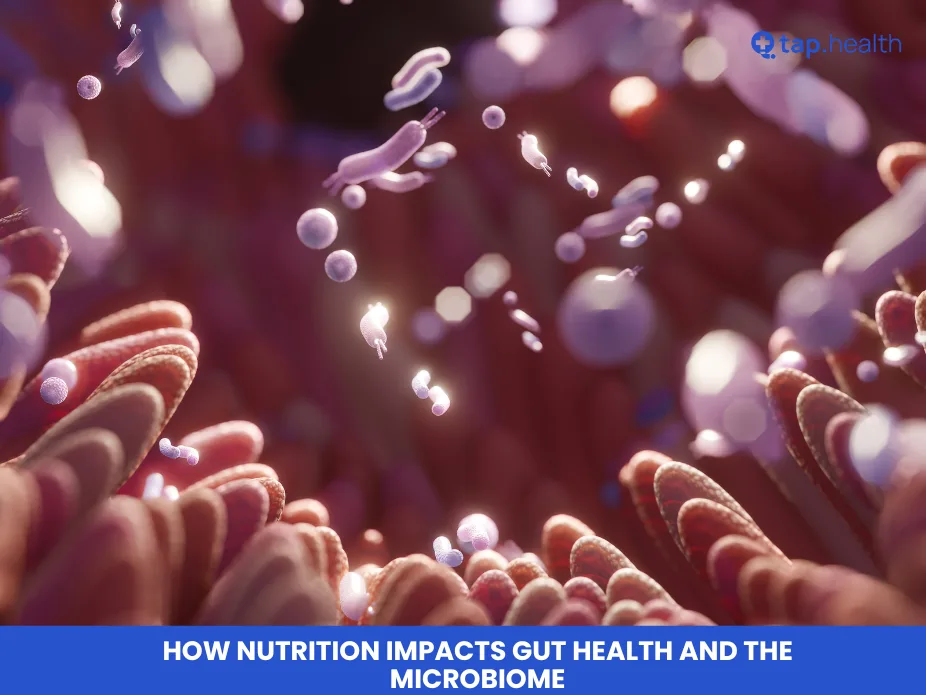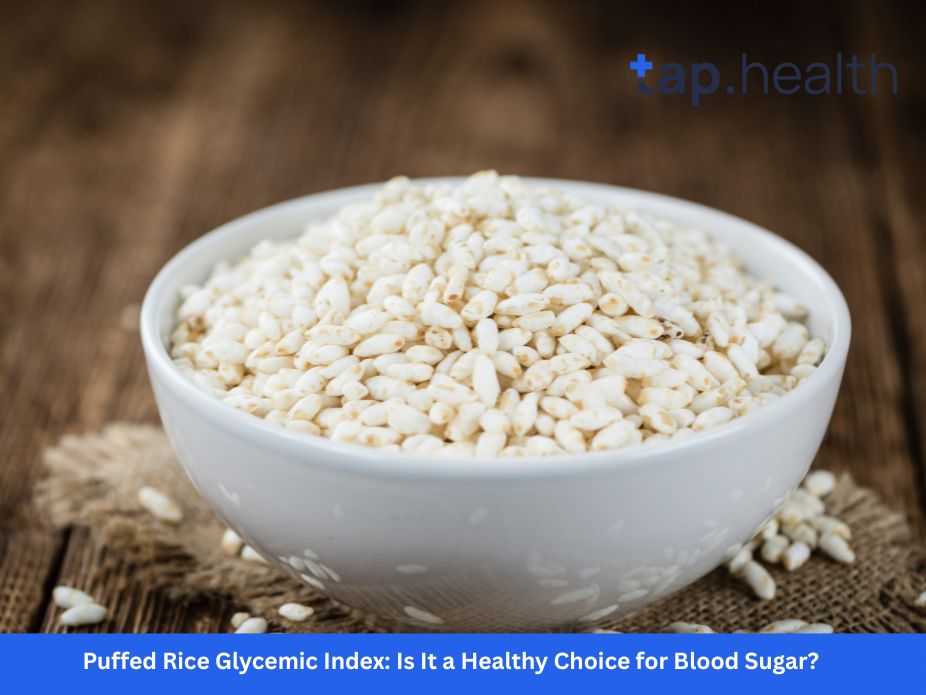The human gut microbiome—the collection of trillions of bacteria, viruses, fungi, and other microbes that reside in the digestive system—plays a critical role in maintaining overall health. It not only influences digestion and nutrient absorption but also affects immune function, mental health, and even metabolism. Emerging research has revealed that diet is one of the most influential factors in shaping the health of our gut microbiome. What we eat can either promote a diverse, healthy microbiome or disrupt the balance of microorganisms in our gut, leading to a host of potential health issues.
In this article, we will explore the vital relationship between nutrition and the gut microbiome, how different foods can support or harm gut health, and actionable dietary strategies to maintain a thriving microbiome for overall well-being.
What is the Gut Microbiome?
The gut microbiome is a complex ecosystem of microorganisms residing in the gastrointestinal tract. It consists of both beneficial bacteria that promote health and harmful bacteria that can lead to disease when they overgrow. A balanced microbiome is crucial for digestive health and is involved in various bodily functions, including:
- Digestion and breakdown of food
- Absorption of nutrients like vitamins and minerals
- Immune system regulation and defense against harmful pathogens
- Production of short-chain fatty acids (SCFAs) like butyrate, which help maintain the integrity of the gut lining
- Metabolic functions, including the regulation of fat storage and blood sugar levels
- Mood regulation via the gut-brain axis (the bidirectional communication between the gut and the brain)
The composition of the gut microbiome can vary greatly from person to person, influenced by factors such as genetics, lifestyle, environment, and, importantly, diet. Diet plays a significant role in shaping the types of microbes that thrive in the gut, with some foods promoting beneficial bacteria and others feeding harmful microbes.
How Diet Influences the Microbiome
1. Fiber-Rich Foods and Gut Health
One of the most important dietary components for a healthy microbiome is dietary fiber. Fiber acts as a prebiotic, a type of food that benefits the growth and activity of beneficial bacteria in the gut. These good bacteria break down fiber into short-chain fatty acids (SCFAs) like butyrate, which have anti-inflammatory properties and help maintain the integrity of the intestinal lining.
- Sources of Fiber:
- Whole grains (e.g., oats, barley, quinoa)
- Fruits (e.g., apples, bananas, berries)
- Vegetables (e.g., broccoli, carrots, spinach)
- Legumes (e.g., beans, lentils, chickpeas)
- Nuts and seeds (e.g., almonds, chia seeds)
A high-fiber diet promotes a diverse microbiome by encouraging the growth of a wide variety of beneficial bacteria. This diversity is essential for gut health, as it supports better digestion and reduces the risk of digestive disorders like irritable bowel syndrome (IBS), constipation, and inflammatory bowel disease (IBD).
2. Probiotics and Fermented Foods
Probiotics are live beneficial bacteria that can help restore balance in the gut. These good bacteria can be found in fermented foods, which have been shown to promote a healthy microbiome by increasing the number of good bacteria in the gut.
- Sources of Probiotics:
- Yogurt (with live and active cultures)
- Sauerkraut
- Kimchi
- Kefir
- Miso
- Tempeh
- Pickles (fermented in brine, not vinegar)
Probiotics can help improve gut health by replenishing beneficial microbes that might be depleted due to illness, antibiotic use, or an unhealthy diet. They may also support digestion, immune function, and reduce inflammation in the gut.
3. Polyphenols and Gut Microbiome Diversity
Polyphenols are plant compounds found in a variety of colorful fruits, vegetables, nuts, seeds, and beverages like green tea and coffee. These compounds have antioxidant properties and are also thought to promote a healthy gut microbiome by stimulating the growth of beneficial microbes.
- Sources of Polyphenols:
- Berries (e.g., blueberries, strawberries)
- Apples
- Dark chocolate (at least 70% cocoa)
- Green tea
- Red wine (in moderation)
- Nuts (e.g., almonds, walnuts)
Polyphenols can enhance microbial diversity by supporting the growth of bacteria that produce beneficial metabolites, such as SCFAs, which have a positive effect on overall gut health.
4. The Impact of Fat on the Microbiome
The types of fat we consume also play a role in shaping the gut microbiome. While healthy fats—such as those found in olive oil, avocados, nuts, and fatty fish—can support gut health, excessive intake of saturated fats and trans fats can disrupt the balance of bacteria, promoting inflammation and potentially harming the gut lining.
- Healthy Fats for Gut Health:
- Omega-3 fatty acids: Found in fatty fish (e.g., salmon, mackerel), flaxseeds, chia seeds, and walnuts.
- Monounsaturated fats: Found in olive oil, avocado, and nuts.
On the other hand, diets high in saturated fats—typically found in red meat, full-fat dairy, and processed foods—have been linked to an imbalance in the microbiome, which may lead to gut inflammation and metabolic diseases.
5. Sugar and Artificial Sweeteners: A Gut Health Red Flag
Excessive sugar consumption has been linked to gut dysbiosis—an imbalance between good and bad bacteria. Diets high in sugar and refined carbs feed harmful bacteria and yeast, such as Candida, while reducing the diversity of beneficial bacteria.
- Sources of Excess Sugar:
- Soda and sugary beverages
- Candy and baked goods
- Processed snacks
Similarly, artificial sweeteners, found in diet sodas and sugar-free products, may alter the gut microbiome by promoting the growth of harmful bacteria. Some studies have shown that artificial sweeteners like aspartame, sucralose, and saccharin can negatively affect gut health and metabolic processes.
The Gut-Brain Axis: How Nutrition Affects Mental Health
The gut and brain communicate via a complex system called the gut-brain axis. This bidirectional communication means that the state of your gut microbiome can influence mood, cognition, and even mental health conditions like anxiety and depression. Diets rich in fiber, polyphenols, and probiotics have been shown to improve mental well-being by supporting the growth of gut bacteria that produce neurotransmitters like serotonin—often called the “feel-good” hormone.
- Dietary Recommendations for Mental Health:
- Increase fiber-rich foods to support gut health.
- Include omega-3 fatty acids from fatty fish to promote brain function.
- Consume fermented foods and probiotics to support gut health and mental clarity.
Real-Life Scenarios
Scenario 1:
Sarah, a 34-year-old woman, had been struggling with digestive discomfort and bloating. After consulting with a dietitian, she switched to a high-fiber diet rich in fruits, vegetables, whole grains, and legumes. She also incorporated more fermented foods like kimchi and yogurt into her meals. Within a few weeks, Sarah noticed a significant improvement in her digestion and reduced bloating, which she attributed to a healthier gut microbiome.
Scenario 2:
Mark, a 50-year-old man with symptoms of anxiety and low mood, began consuming more prebiotics (e.g., garlic, onions, bananas) and probiotics (e.g., kefir, sauerkraut) after reading about the connection between gut health and mental health. He also started drinking green tea and added more omega-3 fatty acids into his diet. Over time, Mark noticed improvements in his mood and reduced anxiety levels.
Expert Contributions
Dr. Helen Turner, a gastroenterologist, explains:
“A healthy microbiome is the foundation of digestive health. Diet is one of the most effective tools for promoting a diverse and balanced microbiome. By including fiber, probiotics, and polyphenols in your diet, you can support digestion, immune function, and even mental well-being.”
Dr. Michael Roberts, a nutritionist, adds:
“Nutrition is incredibly powerful when it comes to shaping the gut microbiome. A diet high in processed foods, sugars, and unhealthy fats can lead to an imbalanced microbiome. On the other hand, a whole-foods diet rich in fiber, healthy fats, and fermented foods supports a healthy microbiome, which is essential for overall health.”
Conclusion: Nutrition as the Key to a Healthy Gut
Nutrition plays a central role in promoting a healthy gut microbiome, which in turn impacts digestion, immunity, metabolism, and even mental health. To support a thriving microbiome, focus on eating fiber-rich foods, incorporating probiotics and prebiotics, avoiding excessive sugar and processed foods, and including healthy fats in your diet. By making mindful dietary choices, you can foster a balanced microbiome that supports overall wellness and vitality.
Sources:
- Harvard T.H. Chan School of Public Health: The Gut Microbiome and Health
- National Institutes of Health: Gut Microbiome
- American Gut Project: Gut Health Research
FAQs About Nutrition and Gut Health
Q1: How does fiber improve gut health?
Fiber acts as a prebiotic, feeding beneficial bacteria in the gut and promoting the production of short-chain fatty acids, which support gut lining integrity and reduce inflammation.
Q2: What foods are best for a healthy microbiome?
Foods rich in fiber (fruits, vegetables, whole grains), probiotics (yogurt, kimchi, sauerkraut), and polyphenols (berries, green tea, dark chocolate) are best for supporting a healthy microbiome.
Q3: Can diet really affect mental health through the gut microbiome?
Yes, the gut-brain axis means that a healthy gut can positively impact mood and mental clarity. Diets rich in fiber, omega-3s, and fermented foods can help improve mental well-being.
Q4: Is it okay to take probiotic supplements?
Probiotic supplements can be beneficial, especially for individuals with digestive issues or after taking antibiotics. However, getting probiotics from whole foods is often more effective due to the variety of strains they contain.
Q5: How long does it take to notice changes in gut health with diet changes?
It typically takes a few weeks to a couple of months to notice significant changes in gut health after dietary adjustments. However, the improvement in symptoms like bloating, digestion, and mood can occur sooner.
o1-mini



